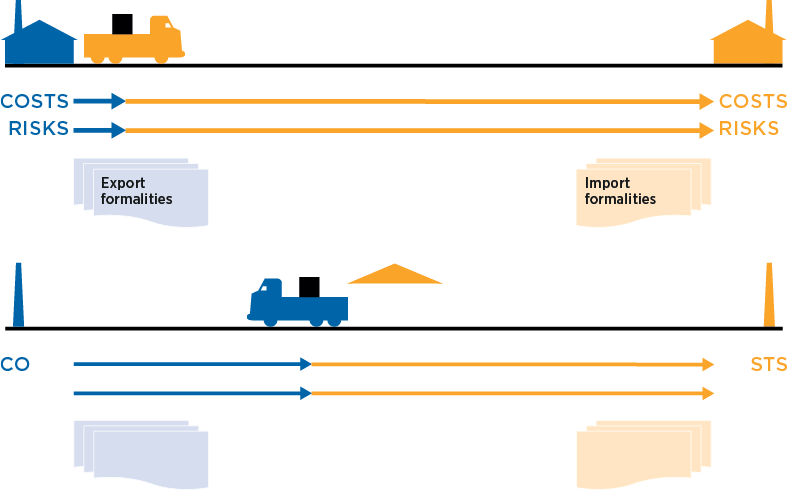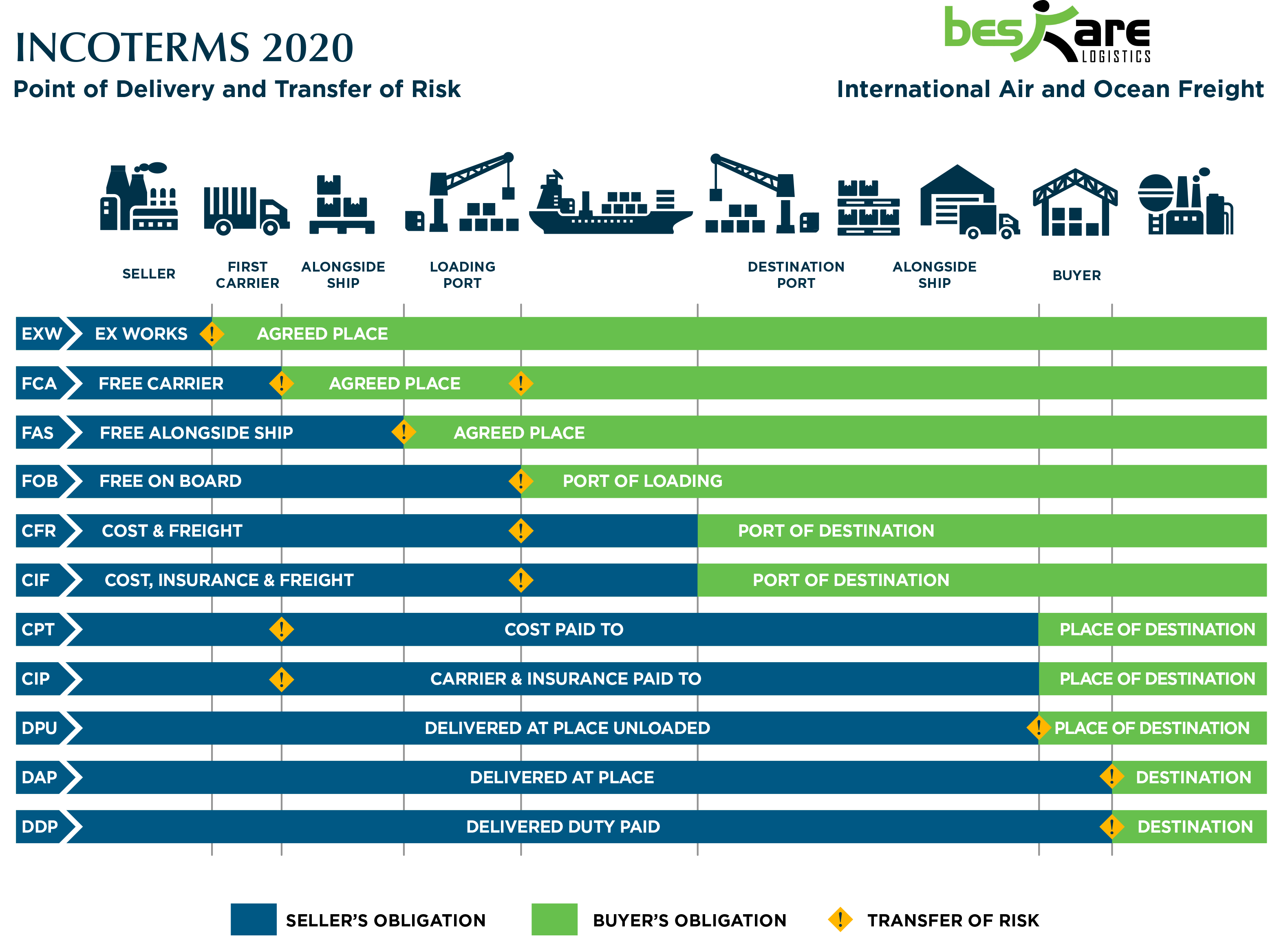What are incoterms® 2020 rules?
Incoterms® is a standardized set of rules that facilitate international trade by defining when and where delivery takes place. Developed by the International Chamber of Commerce, these rules assign responsibilities for tasks, risks, and costs between parties involved in the transaction. Although they may seem complex, they are designed to simplify international trade and provide clarity for all parties involved.
Rules for any Mode of Transport
EXW - Ex Works

EXW means that the seller makes the goods available at their premises or at another named place (works, factory, warehouse etc). The seller does not need to load the goods on any collecting vehicle, nor does it need to clear the goods for export.

FCA – Free Carrier

FCA can have two different meanings, each with varying levels of risk and cost for the buyer and seller. FCA (a) is used when the seller delivers the goods, cleared for export, at a named place which is their own premises. FCA (b) is used when the seller delivers the goods, cleared for export, at a named place that is not their premises. In both instances, the goods can be delivered to a carrier nominated by the buyer, or to another party nominated by the buyer.

CPT - Carriage Paid To

CPT means that the seller delivers the goods to the carrier or another person nominated by the seller at an agreed place (if any such place is agreed between parties) and that the seller must contract for and pay the costs of carriage necessary to bring the goods to the named place of destination…

CIP – Carriage and Insurance Paid to

Similar to CPT with the exception that the seller is required to obtain minimum insurance for the goods while in transit.

DPU - Delivered at Place Unloaded

This Incoterm requires that the seller delivers the goods, unloaded, at the named place. The seller covers all the costs of transport (export fees, carriage, unloading from the main carrier at the destination port and destination port charges) and assumes all risk until arrival at the destination place.

DAP – Delivered at Place

The seller is deemed to have delivered when the goods are placed at the disposal of the buyer on the arriving means of transport and ready for unloading at the named place of destination. Under DAP terms, the seller needs to manage all risks involved in bringing the goods in.

DDP - Delivered Duty Paid

The seller is responsible for delivering the goods to the named place in the buyer’s country, and pays all costs in bringing the goods to the destination including import duties and taxes. The seller is not responsible for unloading.

Rules for Sea and Inland Waterway Transport
FAS - Free Alongside Ship

The seller delivers when the goods are placed alongside the vessel (e.g., on a quay or a barge) nominated by the buyer at the named port of shipment. The risk of loss or damage to the goods passes when the goods are alongside the ship, and the buyer takes on responsibility for all costs from that moment onwardsresponsibility for all costs from that moment onwards.

FOB – Free on Board

The seller delivers the goods on board the vessel nominated by the buyer at the named port of shipment or procures the goods already delivered. The risk of loss or damage to the goods passes when the goods are on board the vessel, and the buyer takes on responsibility for all costs from that moment onwards.

CFR - Cost and Freight

The seller delivers the goods on board the vessel. The risk of loss or damage to the goods passes when the goods are on board the vessel. The seller must contract for and pay the costs and freight necessary to bring the goods to the named port of destination.

CIF – Cost, Insurance and Freight




